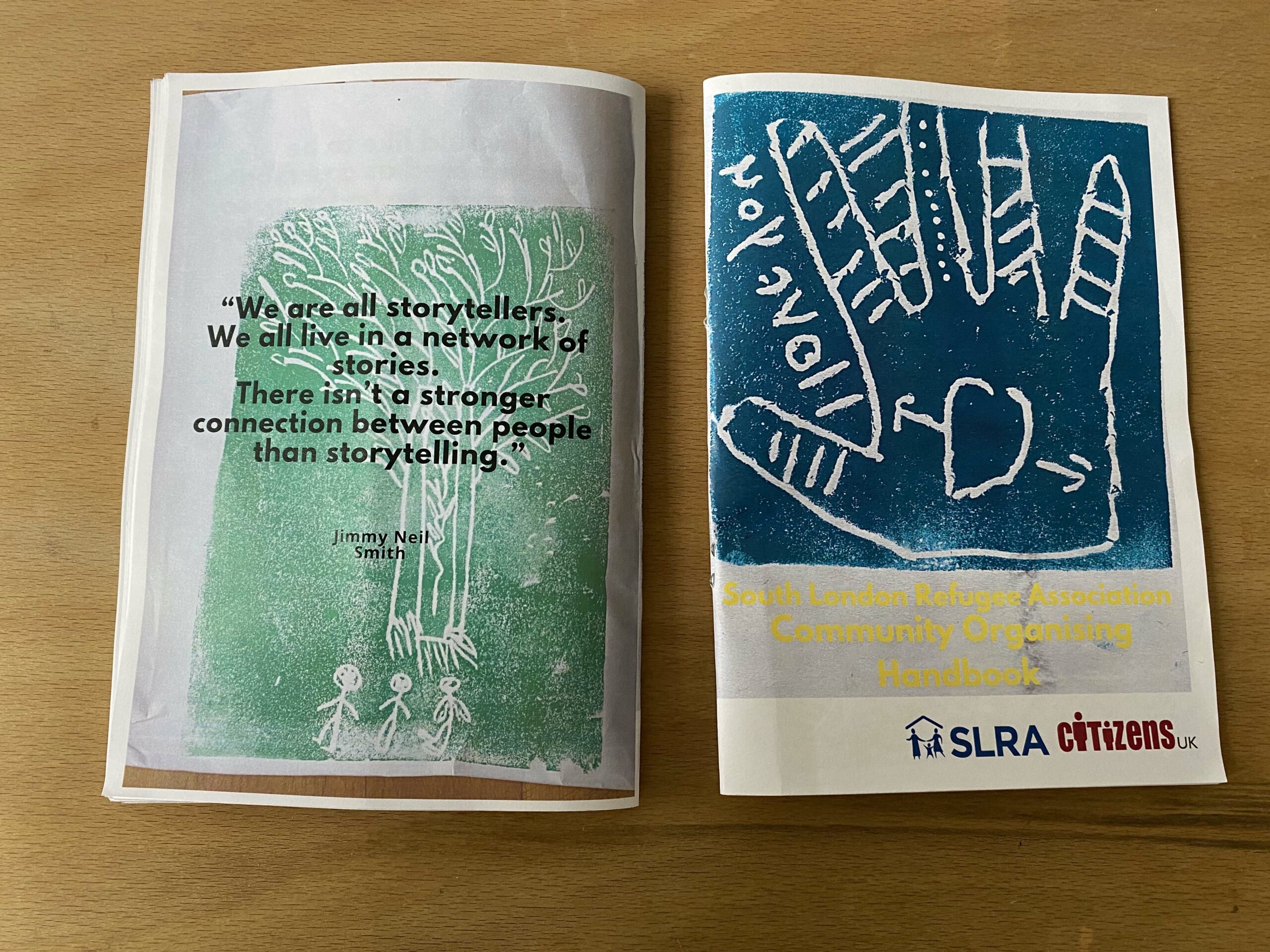Community Organising Course with Citizens UK
During February, around 30 people we work with, joined our community organising course facilitated by Abigal and Elsie from Citizens UK. Every Thursday morning the whole group met online for 2 hours to learn about what community organizing means, what different kinds of power and leadership there are, and the impact of storytelling for change.
Citizens UK is a community organising network of many different local organisations, charities, churches, and schools. They run different campaigns around housing, young people, migration, refugees, environment, mental health, living wage and many more. SLRA is part of the Lambeth Citizens Alliance.
This is a video from one of their powerful campaigns around living wage:
Community organising is about people’s power, leadership, action, listing, togetherness, change, and diversity. Community organising is to get people together to gain power and take actions on topics that matter to them. Then communities approach people in decision making power, to campaign for their agendas and to create change. However, community organising also includes creating leaders who are equipped for the change they want to see.
More information here:
Our community organising and leadership training at SLRA is an opportunity for the people we work with to build confidence and leadership skills, to find out how to make change on issues that they care about in our community, and to find out how they can get involved in campaigning in the local elections and in other projects with CitizensUk and us, SLRA. The idea is to equip active and motivated members of our SLRA community to become an even more essential part of all our campaigns and projects that we do at SLRA because the people we work with are at the heart of our work.
The four different sessions cover topics like: Power, self-interest, leadership and action, cycle of organising and next steps.
In the first session, we introduced the work of Citizens and spoke about how the world is and how we think the world should like. We discussed the different kinds of power because if you want change, you need power first. The power that community organising is referring to is power that comes if many people come together who want to see the same or similar change happen. At the end of the first session, we shared different stories of power and community.

In the second session, we reflected on our own self-interest: Why do we do what we do? Recognizing self-interests means that you recognise yourself and say ‘I matter’. We also learned about story-telling: story of self, story of us, story now. In small groups, we shared our own stories and topics that are related to this and later answered the question how these stories themselves can become a campaign.
In the third session, the focus was on leaders. We started the session by answering the question: Who is a leader that you admire and why? – The questions had a huge range from family members to Nelson Mandela for example. Then, we shared our understanding of what kind of qualities a good leader has to have and looked at different definitions of leadership. We concluded that everyone can become a leader because leaders are not born but made.

In our final session, we looked at the cycle of organising step by step. There are five main steps: 1) Build a team, 2) Listen, 3) Plan, 4) Action and 5) Negotiate. This might sound simpler than it is, so we split in different break-out rooms to talk about problems that can arise for example if you listen to different team members, or to discuss how you can build relationship that are essential for the final step, negotiate.
Over the last four weeks, our group has learnt a lot, grew together, and got more motivated from week to week to create the change we want to see! We are ready to start this year and to create change for more justice in our society.
We are looking forward to seeing most of our new community leaders in-person next week to hand out the well-deserved certificates, chat, and celebrate together.





